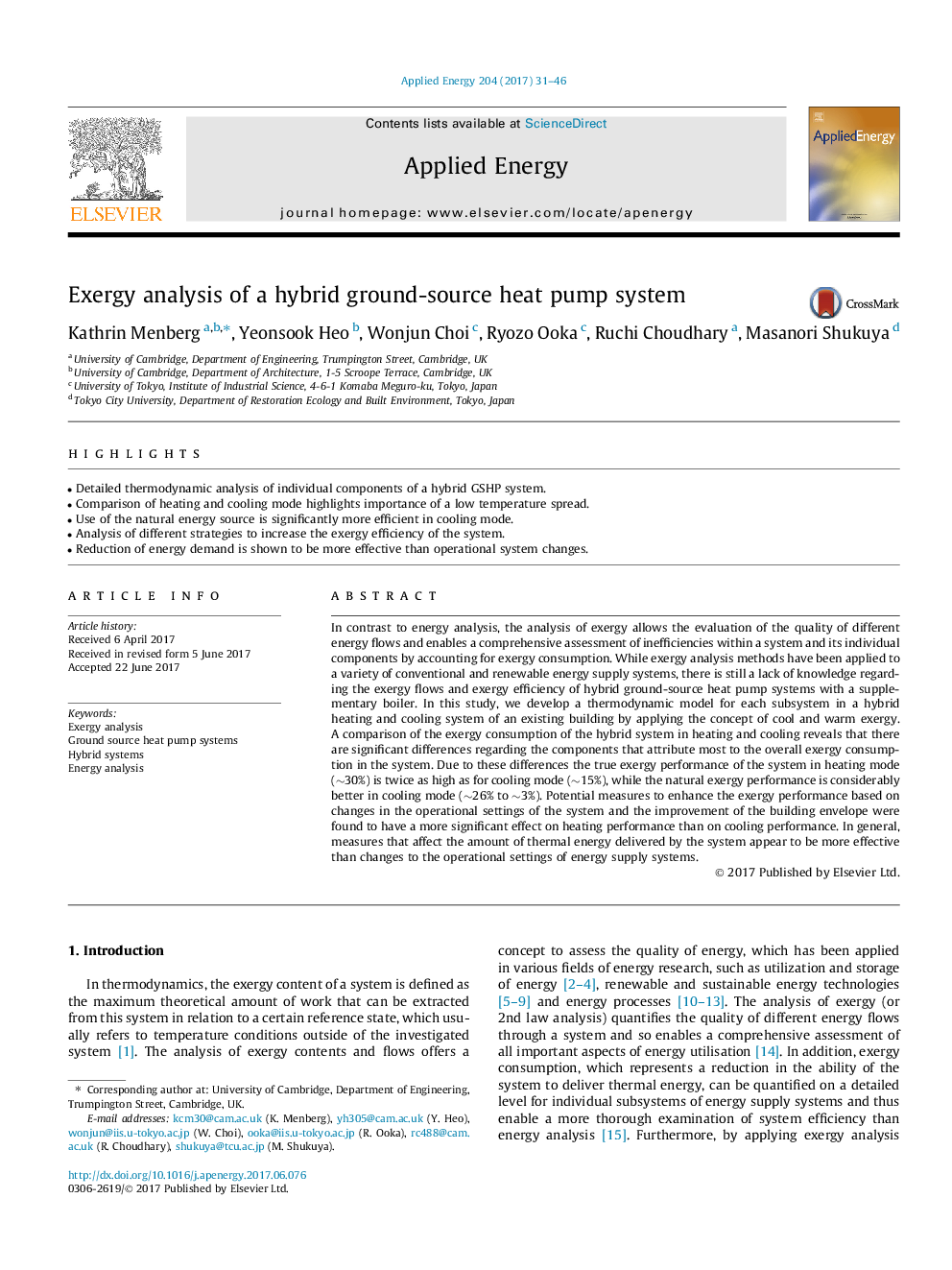ترجمه فارسی عنوان مقاله
تجزیه و تحلیل اگزرژی یک سیستم پمپ گرمای ترکیبی زمین منبع
عنوان انگلیسی
Exergy analysis of a hybrid ground-source heat pump system
| کد مقاله | سال انتشار | تعداد صفحات مقاله انگلیسی |
|---|---|---|
| 112984 | 2017 | 16 صفحه PDF |
منبع

Publisher : Elsevier - Science Direct (الزویر - ساینس دایرکت)
Journal : Applied Energy, Volume 204, 15 October 2017, Pages 31-46
ترجمه کلمات کلیدی
تجزیه و تحلیل اگزرژی، سیستم های پمپ گرمای زمین منبع، سیستم های ترکیبی تجزیه و تحلیل انرژی،
کلمات کلیدی انگلیسی
Exergy analysis; Ground source heat pump systems; Hybrid systems; Energy analysis;

